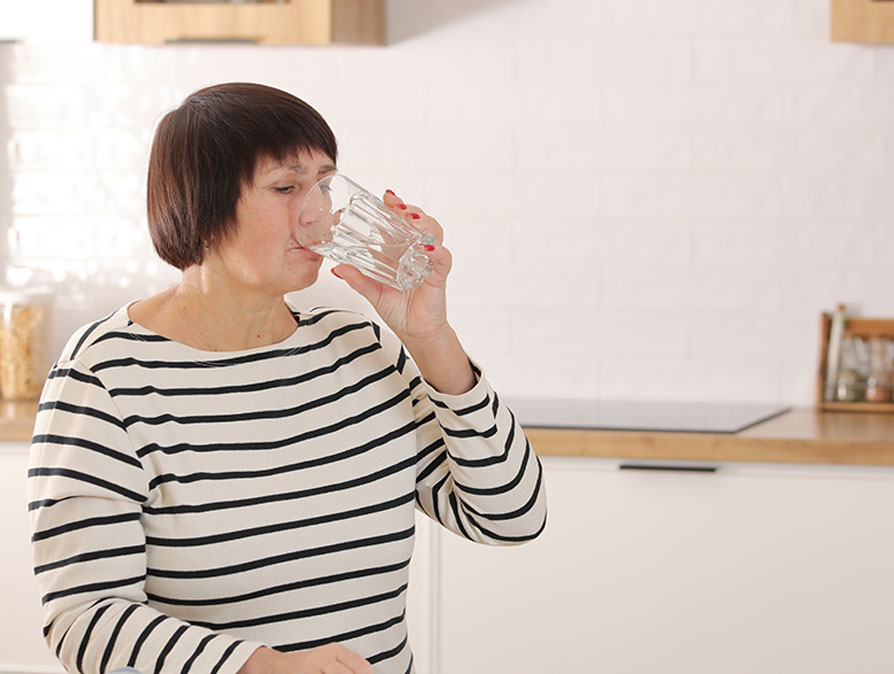One of the most common questions I hear from women navigating menopause is: “What are my options if I can’t, or don’t want to, take hormone therapy (MHT)?” So how do you navigate menopause without MHT?
For many women, including breast cancer survivors with hormone receptor-positive tumours, MHT may not be a safe option. Others may choose not to take hormones for personal reasons. But that doesn’t mean you’re left to ‘just get on with it’ — there are other options, and they can make a real difference.
Here’s a comprehensive guide to non-hormonal approaches for managing menopause symptoms effectively.
Non-Hormonal Medication Options
There are medications that can help manage specific menopause symptoms, particularly hot flushes, night sweats, and mood changes. These are often used off-label for menopause but backed by good evidence.
1. SSRIs (Selective Serotonin Reuptake Inhibitors)
Examples: Escitalopram, Paroxetine, Sertraline.
Originally used as antidepressants, low-dose SSRIs can reduce hot flushes and improve mood. Often helpful if anxiety or low mood is part of the picture.
2. SNRIs (Serotonin-Norepinephrine Reuptake Inhibitors)
Example: Venlafaxine.
Particularly good for vasomotor symptoms (hot flushes, night sweats). Also useful if mood symptoms are present.
3. Gabapentin
Traditionally used for nerve pain, but also effective for hot flushes, especially if night sweats are disturbing sleep. Can help with improving sleep quality.
4. Fezolinetant (Veoza)
A new class of medication called an NK3 receptor antagonist, specifically developed to treat vasomotor symptoms like hot flushes. Showing promising results in reducing flushes without affecting hormones.
Therapies Beyond Medication
Medications are just one piece of the puzzle. There are evidence-based, non-medication approaches that can significantly improve quality of life.
1. Cognitive Behavioural Therapy (CBT)
Proven to help manage hot flushes, night sweats, mood swings, and sleep difficulties. Focuses on changing unhelpful thought patterns and developing practical coping strategies. Accessible via psychologists trained in menopause care, with some online programs available.
2. Lifestyle Approaches
Exercise: Regular physical activity helps reduce hot flushes, improve mood, maintain bone and heart health.
Diet: Focus on whole foods, adequate protein, and calcium-rich foods for bone health.
Sleep hygiene: Consistent bedtime routines, limiting caffeine/alcohol, managing screen time.
Stress reduction: Mindfulness, yoga, breathing exercises to help manage anxiety and flushes.
Nutritional Support – What’s the Evidence?
While supplements aren’t a cure-all, some nutrients have emerging evidence for supporting women through menopause:
1. Vitamin B6
Can help with mood regulation and energy levels. May reduce irritability and low mood in some women.
2. Magnesium
Supports sleep and anxiety. May assist with muscle tension and headaches. Some evidence suggests a role in managing mild hot flushes, though more research is needed.
3. Other Supplements
Omega-3 fatty acids may help with mood regulation and cardiovascular health. Vitamin D and calcium remain important for bone health. Phytoestrogens (e.g., soy isoflavones, red clover) have shown modest benefit in some women for reducing hot flushes, though responses vary.
Note: Always check doses and interactions — it’s important to discuss supplements with a
healthcare professional to ensure they’re right for you.
The Bottom Line – You Have Choices
If you can’t, or choose not to, take MHT, you still have options. Managing menopause is about tailoring care to your needs, whether that’s medication, therapy, lifestyle, or a combination of these.
Every woman’s menopause experience is unique — and your care should reflect that.
If you’re unsure what’s right for you, or you feel like you’re ‘out of options’, please reach out — you don’t have to do this alone.
Want to Know More or Get Personalised Advice?
At The Menopause Connection, I work with women to create individualised care plans that suit your medical history, lifestyle, and preferences. If you’re looking for support beyond hormones, let’s chat about what’s possible for you.




